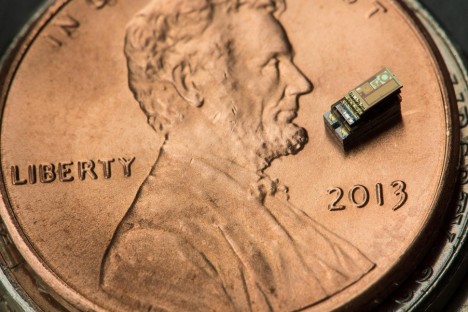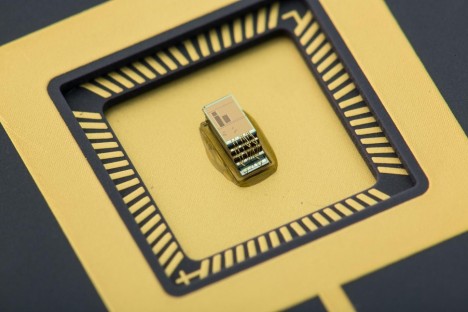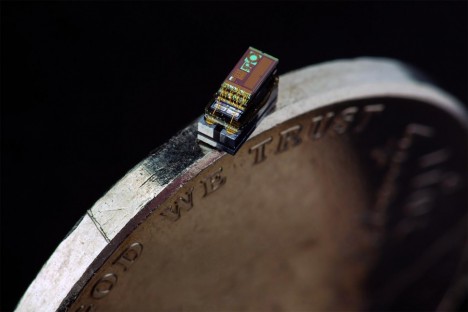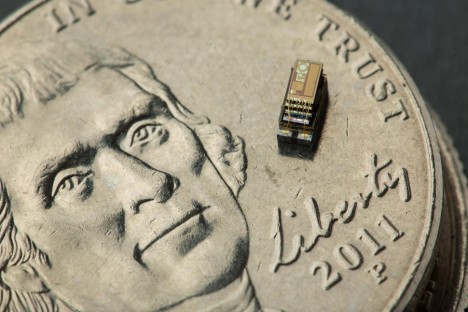
At one millimeter cubed (smaller than a grain of rice), the Michigan Micro Mote is a nothing if not miniature, but it has more surprises beyond its size, including the fact that it is powered by light.

University of Michigan professor David Blaauw worked with a group of students to develop this ultra-tiny device, minimized on all fronts including battery and helped by the fact that it converts light into energy for computing. Memory, input/out, all of the same benefits of a larger system are packed into this wireless computing device – these novel micro-machines can sense pressure, temperature and even take pictures and videos.

Ultimately, the goal is to get these to be small enough to fit inside a biological cell for bio-monitoring. Getting data to and from this ultra-little gadget is part of the problem that required a clever solution: “When its operator strobes light at a high frequency, it can send information to the Micro Mote. Then, it can process the data and send it to a different computer through radio frequencies. The Phoenix processor inside of the compute requires just 500 pico-watts in standby mode, and it can charge its battery in a room with no natural sunlight.”

There are naturally a great many applications for such a small device, too, including but not limited to helping people find lost stuff: “Medical professionals are among the people who are already interested in the tiny computer, which is small enough to be injected in the body. The computer can take pictures, read temperatures and record pressure readings, which could provide benefit to the healthcare industry. However, the oil industry is also interested in the M^3. The idea would be to use the computer to detect pockets of oil that could be extracted before moving onto a new site.”

